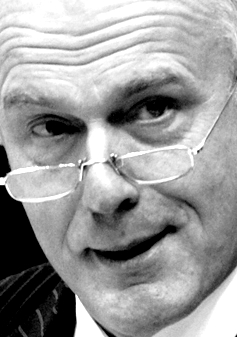'Sports rorts' claims denied
 Concerning new details have emerged about the Federal Government’s two sports rorts.
Concerning new details have emerged about the Federal Government’s two sports rorts.
The first relates to the $100 million Community Sport Infrastructure program, which the government is accused of funnelling to electorates it wanted to win in the 2019 election.
Prime Minister Scott Morrison and other key Coalition figures have repeatedly asserted that all the projects it funded were ‘eligible’ under the terms of the grant scheme.
Mr Morrison has backed the eligibility of the projects at the National Press Club and in Parliament.
Tasmanian Liberal senator Eric Abetz probably sought to return to the eligibility claim when he asked the Australian National Audit Office (ANAO) executive Brian Boyd a question at last week’s Senate inquiry into the sports rorts.
He probably did not expect the answer he received.
“I seek to clarify, you did find that no ineligible project or application was funded?” Senator Abetz asked.
Mr Boyd revealed that 43 per cent of the projects funded were in fact considered ‘ineligible’.
There were a total of 290 projects that were ineligible to receive government money, including 272 projects that had commenced before agreements were signed, 8 projects that had already finished, 5 late applications and 4 applications that were amended after being assessed.
“The guidelines' eligibility requirements don't end just when you've lodged your application, and this is common across many grant programs,” Mr Boyd said.
“If you've completed your work, or in some cases — as in this one — you've even started your work before a funding agreement is signed, you're not eligible to receive funding.”
More details were revealed about the damning colour-coded spreadsheets - which identified projects by the political leaning of the electorates they were based in - showing Mr Morrison's office was more heavily involved than it has admitted to date.
The audit office said Senator McKenzie's office worked with Mr Morrison's office from October 2018 until April 2019, exchanging “comfortably dozens” of emails, officials revealed, allowing the Prime Minister’s office to make suggestions about funding.
“Suggestions directly about these ones, rather than those ones,” Mr Boyd said.
“[For example], ‘These are the ones we think should be included in the list of approved projects’.
“Or passing on lists of applications, as to whether they could be included and those to be approved.
“There isn't a single spreadsheet, there's dozens of versions of a spreadsheet.
“And for each round [of the program] there were various iterations indicating on different days — and sometimes different hours of the day — which are the projects which the minister's office were indicating were going be approved for funding,” he said.
Senator Abetz later downplayed the probably unexpected response to his question, saying; “Prime ministerial offices always involve themselves in all processes”.
Additionally, the Labor party has accessed an LNP brief through freedom of information laws which shows that just a fraction of a separate $150 million sports fund was spent in rural areas.
The $150 million Female Facilities and Water Safety Stream Program, announced by the Coalition less than two months before the election, was intended to pay for female change rooms and swimming pool upgrades.
The scheme was included under the government’s regional development funding stream, but the documents (PDF) show Liberal-held, metro seats received nearly $110 million of the total four-year fund. Also, rather than money being rolled out over four years, all of the funds were allocated in the 2019 election campaign.
The key marginal seats of Pearce and Corangamite were granted almost 40 per cent of the total funding pool.
Nationals leader and deputy prime minister Michael McCormack has defended the government’s apparent lack of interest in the majority of rural electorates.
“Well, regional Australia doesn’t miss out under the Nationals being in government,” Mr McCormack told the ABC.
“Over a spread, you will see that regional Australia and metropolitan Australia all received fair and equitable funding when it comes to providing it,” he said.
He said regional Australia would get its share “in future rounds”, despite the full $150 million fund already being allocated.








 Print
Print